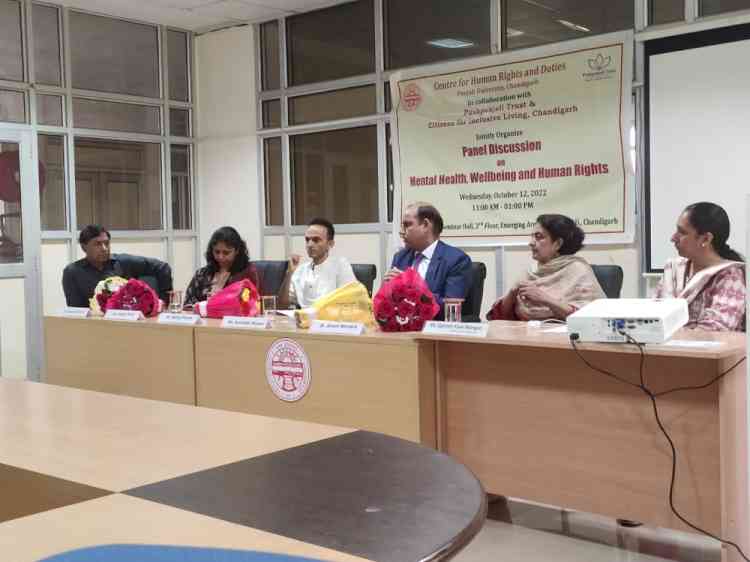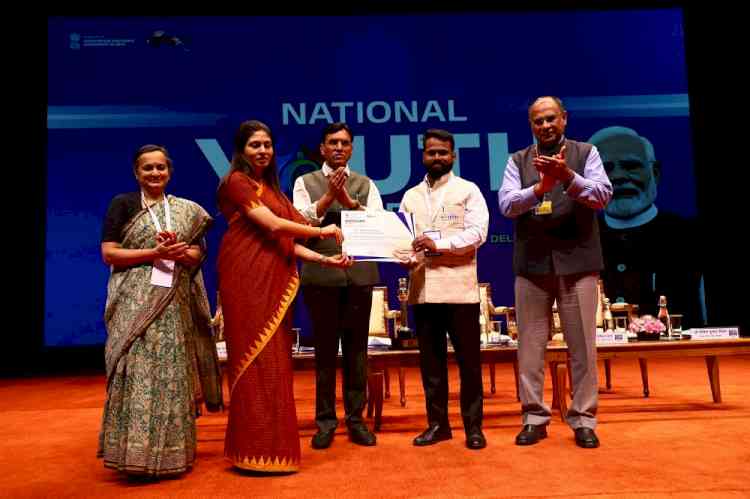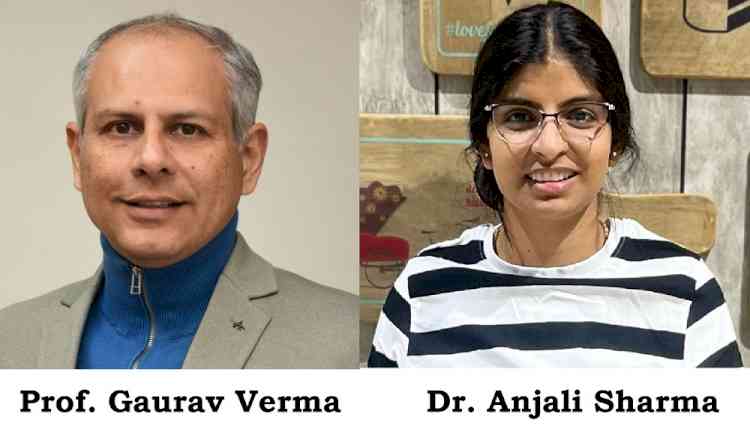Panel Discussion on Mental Health, Well-Being and Human Rights
“Supportive Society & Human Rights Based Approach can help deal with Mental Health Issues”

Chandigarh, October 12, 2022: Having a supportive community and asserting our legal rights can go a long way in addressing mental health issues in the society, said panelists at a panel discussion on ‘Mental Health, Well Being and Human Rights’ organized by the Centre for Human Rights and Duties, Panjab University, in collaboration with Pushpanjali Trust and Citizens for Inclusive Living, here today.
Delivering the inaugural address, Surender Kumar, member secretary of State Legal Services Authority (SLSA), Chandigarh, informed the participants about various provisions of the Mental Healthcare Act 2017.
“It is a progressive legislation that provides various rights to persons with mental illnesses and their caregivers but unfortunately it is not properly implemented. Right to access mental healthcare and treatment without any discrimination, right to community living, right to legal aid from the government, and right to confidentiality are some of the provisions of this Act,” he said. “Under the legislation, every state shall establish state mental health authority which will register mental health establishments and surpervise them but Chandigarh does not have such an authority yet. We also don’t have a mental health review board which protects rights of persons with mental illness.”
Dr Simmi Warraich, consulting psychiatrist with Fortis Hospital, highlighted the gaps in facilities and infrastructure. “Most of the psychiatrists in government hospitals of India are overburdened and they don’t have support staff because of lack of adequate budget for mental health services,” she said. “One of the limitations of the Mental Healthcare Act is that it doesn’t have the provision of community mental health treatment which involves follow up with patients at their homes so that they don’t leave medication. We need to involve ASHA workers and angandwadi workers because they are already in the community.”
Megha Sood, a caregiver and executive committee member of the Citizens for Inclusive Living, shared her experience and underscored the need to speak out. “Being human is more important than having a good job or a big house. Acknowledge your challenges, speak about them to your friends, and seek professional help because running away from them will only worsen the situation. Take care of yourself, your family members, friends and neighbours. Mental health is such a complex issue that we need a compassionate society working alongside professional services,” she said.
Sood also stressed on the need to stand for ourselves. “Citizens for Inclusive Living is a group of caregivers which campaigned for a group home for persons with mental illnesses and finally the Chandigarh administration agreed to set up such a place. We need more such initiatives because the challenge of mental health is only going to increase,” she added.
Aditya Vikram Rametra, managing trustee of Pushpanjali Trust, stressed on the need to have a mental health club or a peer support group on the campus. He also talked about how a mental health issue can be result of a combination of factors. “It can be a combination of genetics, social situation and psychological make up. Social factors like poverty, discrimination and violence not only make people more vulnerable to mental health issue but also reduce access to treatment facilities.”
Dr Ramesh Kataria, Coordinator of Equal Opportunity Cell- Persons with Disablities, Panjab University, talked about the need to have counsellors in the university. Dr Upneet Kaur Mangat, Chairperson of the Centre for Human Rights and Duties, also stressed on the need to have counsellors at PU health Centre so that students can easily access psychological services wherein students can seek psychological first aid in case of emotional distress. The need to have counselling services within Higher Educational Institutions have been acknowledged by the UGC in its circular issued in 2020 to address mental health and well-being of students.
The participants also shared their experiences with mental health issues and social stigma around treatment.


 City Air News
City Air News 








